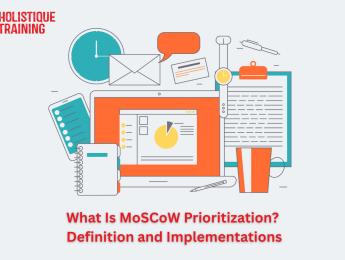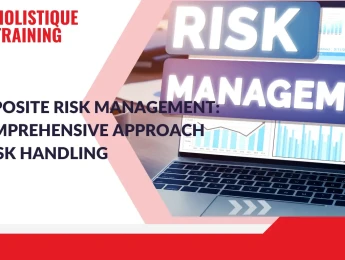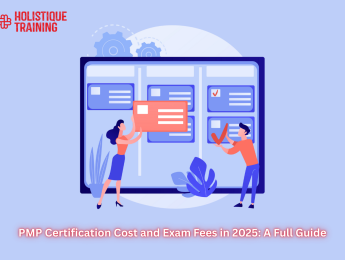Introduction
In today's fast-paced and ever-evolving professional landscape, staying ahead of the curve is more important than ever. The rise of new technologies, shifting industry standards, and the constant demand for new skills have made continuous learning a necessity for career advancement and job security. Investing in professional training is not just a way to stay competitive in the job market; it is a strategic move towards enhancing career growth, improving job performance, and preparing for future challenges. This article explores the top 10 professional training courses of 2025, guiding you on how to choose the right course to meet your career goals and professional aspirations.
Why Invest in Professional Training?
1. Staying Competitive in a Dynamic Job Market
The professional landscape is constantly evolving, driven by technological advancements, changing industry standards, and emerging trends. By investing in professional training, individuals can stay updated with the latest skills and knowledge, making them more competitive and valuable in the job market. Continuous learning ensures that professionals are not left behind as their fields advance.
2. Enhancing Career Growth and Opportunities
Professional training opens doors to new career opportunities and advancements. Acquiring new certifications, skills, or expertise can lead to promotions, salary increases, and job transitions. It empowers individuals to take on new roles and responsibilities, demonstrating their commitment to personal and professional growth.
3. Improving Job Performance and Productivity
Investing in professional training helps improve job performance by providing employees with the tools and techniques needed to perform their tasks more efficiently and effectively. Training enhances problem-solving abilities, boosts confidence, and fosters innovation, leading to increased productivity and better outcomes for both individuals and their organizations.
4. Adapting to Technological Changes
In today's digital age, technology is rapidly transforming industries. Professional training helps individuals adapt to these changes by equipping them with the necessary skills to leverage new technologies. Whether it's learning about data analytics, cybersecurity, or digital marketing, staying technologically adept is crucial for career longevity and success.
5. Fostering Personal Development and Satisfaction
Beyond professional benefits, training also contributes to personal development. It encourages a growth mindset, enhances critical thinking, and fosters a sense of accomplishment. Engaging in lifelong learning can lead to greater job satisfaction, as individuals feel more competent and confident in their abilities.
6. Building a Professional Network
Participating in professional training courses often provides opportunities to connect with peers, industry experts, and mentors. Building a professional network can offer support, guidance, and collaboration opportunities. Networking can also lead to new job prospects and partnerships, further enhancing one's career.
7. Meeting Regulatory and Certification Requirements
Certain professions require ongoing education and certification to comply with industry regulations and standards. Professional training ensures that individuals meet these requirements, maintaining their credentials and professional standing. This is especially important in fields such as healthcare, finance, and IT, where compliance is critical.
8. Contributing to Organizational Success
When employees invest in their professional development, it benefits not only them but also their organizations. Well-trained employees bring fresh ideas, improved skills, and a proactive approach to their work, contributing to the overall success and competitiveness of their organizations.
9. Preparing for Future Challenges
The future job market will bring new challenges and opportunities. Professional training prepares individuals to navigate these changes effectively. By staying informed and adaptable, professionals can anticipate industry shifts and position themselves as leaders in their fields.
10. Boosting Confidence and Job Security
Acquiring new skills and knowledge boosts confidence, as individuals feel more capable and prepared to tackle their responsibilities. This increased confidence can lead to better job security, as employees who continually update their skills are seen as valuable assets to their organizations.
Table1: Reasons to Invest in Professional Training
Reason | Description |
1. Staying Competitive in a Dynamic Job Market | Keep updated with the latest skills and knowledge to remain competitive and valuable. |
2. Enhancing Career Growth and Opportunities | Open doors to promotions, salary increases, and new job roles. |
3. Improving Job Performance and Productivity | Gain tools and techniques for efficient and effective task performance. |
4. Adapting to Technological Changes | Equip yourself with skills to leverage new technologies and stay relevant. |
5. Fostering Personal Development and Satisfaction | Encourage a growth mindset, critical thinking, and a sense of accomplishment. |
6. Building a Professional Network | Connect with peers, industry experts, and mentors for support and opportunities. |
7. Meeting Regulatory and Certification Requirements | Comply with industry standards and maintain professional credentials. |
8. Contributing to Organizational Success | Bring fresh ideas and improved skills to enhance organizational performance. |
9. Preparing for Future Challenges | Stay informed and adaptable to navigate future industry shifts. |
10. Boosting Confidence and Job Security | Increase confidence and job security by continuously updating skills. |
What Makes a Training Course Stand Out?
1. Relevant and Updated Content
A standout training course offers content that is up-to-date with current industry trends and practices. It addresses the latest developments and incorporates recent innovations, ensuring that learners gain relevant knowledge and skills that are immediately applicable in their professional fields.
2. Experienced and Knowledgeable Instructors
Instructors with extensive industry experience and expertise bring invaluable insights to the course. They not only teach theoretical concepts but also share practical experiences, real-world examples, and best practices. This enhances the learning experience by providing learners with a deeper understanding of the subject matter.
3. Practical Application and Hands-On Learning
Courses that emphasize practical application and hands-on learning stand out because they allow learners to apply what they have learned in real-world scenarios. This can include case studies, projects, simulations, and interactive exercises that reinforce theoretical knowledge and develop practical skills.
4. Comprehensive Curriculum
A comprehensive curriculum covers all essential topics and skills within a given subject area. It is well-structured, logically sequenced, and designed to build on learners' existing knowledge. A thorough curriculum ensures that learners gain a holistic understanding of the subject and can progress from foundational concepts to advanced techniques.
5. Flexibility and Accessibility
Training courses that offer flexible scheduling and multiple delivery methods (e.g., online, in-person, hybrid) cater to the diverse needs of learners. Accessibility features, such as recorded sessions, mobile-friendly platforms, and downloadable resources, make it easier for learners to engage with the content at their own pace and convenience.
6. Certification and Accreditation
Courses that provide recognized certifications or accreditations add significant value to learners' professional credentials. These certifications can enhance employability, demonstrate expertise, and meet industry standards or regulatory requirements. Accreditation by reputable organizations also assures the quality and credibility of the course.
7. Interactive and Engaging Learning Experience
Engaging courses use a variety of interactive elements, such as quizzes, discussions, multimedia content, and collaborative projects, to keep learners motivated and involved. Interactive learning environments promote active participation, critical thinking, and knowledge retention.
8. Personalized Learning Pathways
Courses that offer personalized learning pathways allow learners to tailor their learning experience to their individual goals and needs. This can include customizable modules, elective topics, and personalized feedback from instructors. Personalized learning ensures that each learner can focus on areas most relevant to their career aspirations.
9. Strong Support System
A robust support system, including access to instructors, mentors, and peer networks, enhances the learning experience. Support services such as academic advising, technical assistance, and career counselling provide learners with the guidance they need to succeed in the course and beyond.
10. Positive Reviews and Testimonials
Courses with positive reviews and testimonials from past learners are likely to stand out. These reviews provide insights into the course's effectiveness, quality, and impact on learners' careers. Testimonials from reputable industry professionals or organizations further validate the course's value.
11. Clear Learning Outcomes and Objectives
Courses that clearly define their learning outcomes and objectives help learners understand what they will achieve by the end of the course. Clear outcomes guide the learning process, set expectations, and provide measurable goals for learners to strive towards.
12. Cost-Effectiveness and Value for Money
Finally, standout training courses offer good value for money. They provide high-quality content, experienced instructors, and comprehensive resources at a reasonable price. Courses that offer financial aid, scholarships, or flexible payment options are also attractive to learners looking to invest in their professional development.
Which Are the Top 10 Professional Training Courses in 2024?
- Project Management Professional (PMP) Certification
- Overview and Benefits: The PMP certification, offered by the Project Management Institute (PMI), is one of the most recognized and respected credentials in project management. It validates an individual's ability to manage projects effectively and efficiently.
- Course Content and Structure: The course covers five key domains: initiating, planning, executing, monitoring and controlling, and closing projects. It includes exam preparation, real-world project simulations, and case studies.
- Target Audience: Project managers, team leaders, and professionals aiming to advance their careers in project management.
- Certified Information Systems Security Professional (CISSP)
- Overview and Benefits: The CISSP certification is globally recognized in the field of information security. It demonstrates an individual’s expertise in designing, implementing, and managing a best-in-class cybersecurity program.
- Course Content and Structure: The curriculum spans eight domains, including security and risk management, asset security, security engineering, and communication and network security.
- Target Audience: IT professionals, security consultants, and network architects.
- Data Science and Machine Learning with Python
- Overview and Benefits: This course equips professionals with the skills to analyse complex data sets and create machine learning models using Python. It’s highly relevant in today's data-driven industries.
- Course Content and Structure: Topics include data manipulation, statistical analysis, machine learning algorithms, and data visualization techniques.
- Target Audience: Data scientists, analysts, and IT professionals looking to specialize in machine learning.
- Digital Marketing Specialist
- Overview and Benefits: A comprehensive course that covers all aspects of digital marketing, from SEO and content marketing to social media and email marketing. It prepares individuals to drive effective online marketing strategies.
- Course Content and Structure: The course includes modules on SEO, SEM, content creation, social media marketing, and analytics.
- Target Audience: Marketing professionals, business owners, and anyone looking to build a career in digital marketing.
- Leadership and Management Training
- Overview and Benefits: This training focuses on developing leadership skills and managerial competencies essential for guiding teams and organizations towards success.
- Course Content and Structure: Key areas covered include strategic thinking, decision-making, team management, and communication skills.
- Target Audience: Aspiring leaders, managers, and executives.
- Certified ScrumMaster (CSM)
- Overview and Benefits: Offered by Scrum Alliance, the CSM certification is crucial for professionals aiming to master the Scrum framework and Agile methodologies.
- Course Content and Structure: It includes Scrum principles, roles, events, and artifacts, along with real-world applications and Scrum simulations.
- Target Audience: Scrum Masters, project managers, and team leaders in Agile environments.
- Financial Modelling and Valuation Analyst (FMVA)
- Overview and Benefits: The FMVA certification, provided by the Corporate Finance Institute (CFI), is essential for financial professionals who want to advance their careers in financial analysis and valuation.
- Course Content and Structure: The course covers financial modelling, valuation techniques, Excel skills, and financial analysis.
- Target Audience: Financial analysts, investment bankers, and corporate finance professionals.
- Cloud Computing Certification (AWS, Azure, Google Cloud)
- Overview and Benefits: Cloud computing certifications from leading providers like AWS, Azure, and Google Cloud validate an individual's expertise in cloud services and architecture.
- Course Content and Structure: Topics include cloud infrastructure, security, deployment, and management of cloud services.
- Target Audience: IT professionals, cloud architects, and system administrators.
- Health and Safety Certification (NEBOSH, OSHA)
- Overview and Benefits: Certifications from NEBOSH (National Examination Board in Occupational Safety and Health) and OSHA (Occupational Safety and Health Administration) are vital for professionals in health and safety roles.
- Course Content and Structure: It includes workplace safety, risk management, and compliance with health and safety regulations.
- Target Audience: Health and safety officers, compliance managers, and operational managers.
- Cybersecurity Certification (CompTIA Security+)
- Overview and Benefits: The CompTIA Security+ certification is an entry-level credential that provides a solid foundation in cybersecurity principles.
- Course Content and Structure: Key topics include threat management, cryptography, identity management, and network security.
- Target Audience: IT professionals, network administrators, and security specialists.
These courses represent some of the most in-demand skills and certifications in the professional world for 2024, catering to a wide range of industries and career paths.
How to Choose the Right Training Course for You?
1. Assess Your Career Goals and Objectives
- Identify Your Long-Term Goals: Determine where you want to be in your career in the next 5 to 10 years. Understanding your long-term aspirations can help you choose a course that aligns with these objectives.
- Short-Term Needs: Consider what skills or knowledge you need immediately to progress in your current role or to achieve a short-term goal.
2. Evaluate Your Current Skill Set
- Conduct a Skills Gap Analysis: Identify the skills you currently possess and the skills required for your desired position. This will help you focus on courses that fill these gaps.
- Seek Feedback: Consult with your manager, mentor, or colleagues to gain insights into areas where you could improve or develop new competencies.
3. Research Course Content and Curriculum
- Course Syllabus: Review the syllabus to ensure it covers the topics and skills you need. Look for comprehensive coverage and depth in the subject matter.
- Practical Application: Ensure the course includes hands-on projects, case studies, or simulations that allow you to apply what you've learned in real-world scenarios.
4. Consider the Course Format and Delivery Method
- Online vs. In-Person: Decide whether you prefer online, in-person, or hybrid learning based on your schedule, learning style, and personal preferences.
- Self-Paced vs. Scheduled: Choose between self-paced courses that allow you to learn at your own speed and scheduled courses with set timelines and deadlines.
5. Evaluate the Instructor's Expertise
- Instructor Credentials: Research the qualifications and industry experience of the instructors. Instructors with a strong background in the field can provide valuable insights and practical knowledge.
- Student Reviews: Look for reviews or testimonials from previous students about the instructor's teaching style and effectiveness.
6. Check for Accreditation and Certification
- Recognized Accreditation: Ensure the course is accredited by a reputable organization or institution. This adds credibility to the certification you receive.
- Industry Recognition: Verify that the certification is recognized and valued by employers in your industry.
7. Consider the Cost and Return on Investment (ROI)
- Course Fees: Compare the costs of similar courses to ensure you are getting value for your money. Consider any additional costs for materials, exams, or memberships.
- Potential ROI: Assess the potential benefits of completing the course, such as salary increases, job promotions, or new career opportunities. Weigh these benefits against the cost of the course.
8. Look for Flexible Learning Options
- Course Schedule: Check if the course offers flexible scheduling options that fit your personal and professional commitments.
- Access to Materials: Ensure you have access to course materials, recordings, and resources even after the course ends, allowing you to review and revisit the content as needed.
9. Explore Networking Opportunities
- Community and Networking: Look for courses that offer opportunities to connect with peers, instructors, and industry professionals. Networking can provide valuable connections and support.
- Alumni Networks: Some courses offer access to alumni networks that can be beneficial for career advancement and professional development.
10. Seek Recommendations and Reviews
- Peer Recommendations: Ask colleagues, mentors, or industry professionals for recommendations on reputable courses they have taken or heard about.
- Online Reviews: Read online reviews and ratings on platforms like LinkedIn, course websites, or educational forums to gauge the experiences of past students.
11. Verify the Course's Support System
- Student Support: Ensure the course offers adequate support services, such as academic advising, technical assistance, and career counselling.
- Instructor Access: Check if you will have opportunities to interact with the instructors for questions, feedback, and guidance.
Table 2:Steps to Select the Right Training Course
Step | Description |
1. Assess Career Goals | Determine long-term and short-term career objectives. |
2. Evaluate Skill Set | Conduct a skills gap analysis and seek feedback from peers. |
3. Research Course Content | Review syllabus and ensure practical application. |
4. Consider Format | Decide between online, in-person, self-paced, or scheduled courses. |
5. Check Instructor Expertise | Research instructor credentials and read student reviews. |
6. Verify Accreditation | Ensure course accreditation and industry recognition. |
7. Assess Cost and ROI | Compare course fees and potential career benefits. |
8. Look for Flexibility | Check for flexible scheduling and access to materials. |
9. Explore Networking | Look for networking opportunities and alumni networks. |
10. Seek Recommendations | Get peer recommendations and read online reviews. |
11. Verify Support System | Ensure availability of student support and instructor access. |
By carefully considering these factors, you can choose a training course that best fits your career goals, learning style, and professional needs, ensuring a meaningful and beneficial investment in your professional development.
Conclusion
Investing in professional training is a crucial step toward maintaining relevance and achieving success in today's dynamic job market. The top 10 professional training courses of 2025 offer a diverse range of opportunities to enhance your skills, boost your career growth, and stay competitive. By carefully assessing your career goals, evaluating your current skill set, and researching course content and credentials, you can select the right training course that aligns with your professional aspirations. Continuous learning not only improves job performance and productivity but also prepares you for future challenges, fosters personal development, and strengthens your professional network. Whether you're looking to advance in your current role, transition to a new field, or simply stay ahead in your industry, professional training is a valuable investment in your career.

























